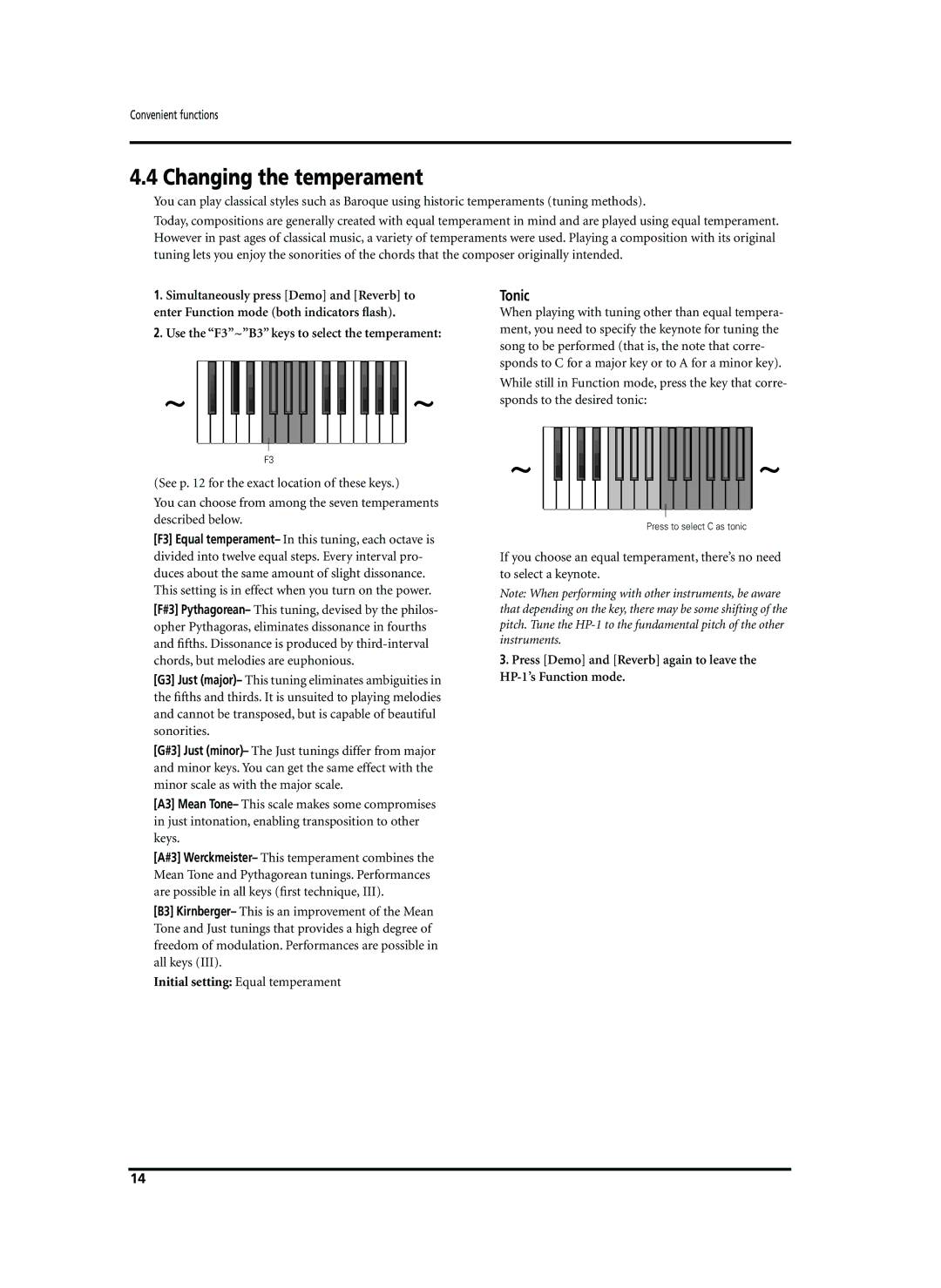
Convenient functions
4.4 Changing the temperament
You can play classical styles such as Baroque using historic temperaments (tuning methods).
Today, compositions are generally created with equal temperament in mind and are played using equal temperament. However in past ages of classical music, a variety of temperaments were used. Playing a composition with its original tuning lets you enjoy the sonorities of the chords that the composer originally intended.
1.Simultaneously press [Demo] and [Reverb] to enter Function mode (both indicators flash).
2.Use the “F3”~”B3” keys to select the temperament:
F3
(See p. 12 for the exact location of these keys.)
You can choose from among the seven temperaments described below.
Tonic
When playing with tuning other than equal tempera- ment, you need to specify the keynote for tuning the song to be performed (that is, the note that corre- sponds to C for a major key or to A for a minor key).
While still in Function mode, press the key that corre- sponds to the desired tonic:
Press to select C as tonic
[F3] Equal temperament– In this tuning, each octave is divided into twelve equal steps. Every interval pro- duces about the same amount of slight dissonance. This setting is in effect when you turn on the power.
[F#3] Pythagorean– This tuning, devised by the philos- opher Pythagoras, eliminates dissonance in fourths and fifths. Dissonance is produced by
[G3] Just (major)– This tuning eliminates ambiguities in the fifths and thirds. It is unsuited to playing melodies and cannot be transposed, but is capable of beautiful sonorities.
[G#3] Just (minor)– The Just tunings differ from major and minor keys. You can get the same effect with the minor scale as with the major scale.
[A3] Mean Tone– This scale makes some compromises in just intonation, enabling transposition to other keys.
[A#3] Werckmeister– This temperament combines the Mean Tone and Pythagorean tunings. Performances are possible in all keys (first technique, III).
[B3] Kirnberger– This is an improvement of the Mean Tone and Just tunings that provides a high degree of freedom of modulation. Performances are possible in all keys (III).
Initial setting: Equal temperament
If you choose an equal temperament, there’s no need to select a keynote.
Note: When performing with other instruments, be aware that depending on the key, there may be some shifting of the pitch. Tune the
3.Press [Demo] and [Reverb] again to leave the
14
